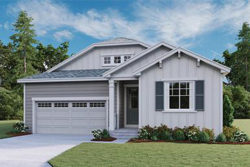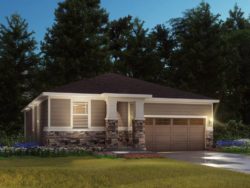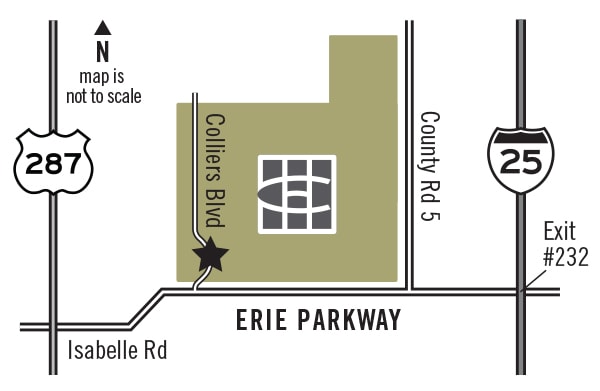2020 Housing Market Trends
The timing of the next recession will be…anyone’s guess. With an election looming in a few months, some might suspect an adverse effect – no matter who’s in the White House by 2021. But prognosticators who look at economic indicators for residential real estate believe that if and when the next recession hits, the housing market is likely to be UN-affected in any dramatic way.
 According to economists at First American Financial Corporation, “In 2020, we argue the housing market is more likely poised to help stave off recession than fall victim to it.”
According to economists at First American Financial Corporation, “In 2020, we argue the housing market is more likely poised to help stave off recession than fall victim to it.”
That’s good news for aspiring home buyers – heck, that’s good news for everybody. The First American report includes data from Freddie Mac and the National Association of Realtors and describes the performance of the housing market in economic downturns. Deputy Chief Economist Odeta Kushi reports that in most cases, home price appreciation tends to continue at an even pace.
Strong Job Market + Low Mortgage Rates
 People still remember the Great Recession of 2008 and look dubiously at the current housing boom, wondering about the similarity to that explosion in home building and ownership. The difference between 2008 and 2020 is that the current economic expansion in home prices and homeownership has not been fueled by out-of-control access to mortgage credit. Twelve years ago, home buyers were able to get mortgages without a down payment and with no income documentation.
People still remember the Great Recession of 2008 and look dubiously at the current housing boom, wondering about the similarity to that explosion in home building and ownership. The difference between 2008 and 2020 is that the current economic expansion in home prices and homeownership has not been fueled by out-of-control access to mortgage credit. Twelve years ago, home buyers were able to get mortgages without a down payment and with no income documentation.
That is a highly unlikely scenario in today’s market.
 The Washington Post reports that the nation’s strong job market and low mortgage rates should sustain the housing market through 2020. Unemployment is at a 50-year low and interest rates are well below historic norms, as well.
The Washington Post reports that the nation’s strong job market and low mortgage rates should sustain the housing market through 2020. Unemployment is at a 50-year low and interest rates are well below historic norms, as well.
Freddie Mac shows the interest rate on the most popular mortgage – the 30-year-fixed loan – has remained below 4 percent for 36 weeks. Ten years ago, the rate was 8.5 percent. In 2008, the rate was 7.0 percent.
 Fannie Mae’s chief economist, Doug Duncan, tentatively predicts that for the first time in years, “housing appears poised to take a leading role in real GDP (gross domestic product) growth over the forecast horizon…further bolstering our modest-but-solid growth forecasts through 2021.” Experts think that mortgage rates are likely to bump up to 3.88 percent by the end of 2020, still low enough to be attractive to home buyers.
Fannie Mae’s chief economist, Doug Duncan, tentatively predicts that for the first time in years, “housing appears poised to take a leading role in real GDP (gross domestic product) growth over the forecast horizon…further bolstering our modest-but-solid growth forecasts through 2021.” Experts think that mortgage rates are likely to bump up to 3.88 percent by the end of 2020, still low enough to be attractive to home buyers.
Existing Homes vs. New Builds
 Realtor.com, the real estate listings website, expects the inventory for existing homes to evaporate, which makes building a home even more attractive, given the low interest rates. The fundamentals still apply – with continuing demand and a constricted supply the biggest challenge for buyers will not be affordability but finding a home to buy.
Realtor.com, the real estate listings website, expects the inventory for existing homes to evaporate, which makes building a home even more attractive, given the low interest rates. The fundamentals still apply – with continuing demand and a constricted supply the biggest challenge for buyers will not be affordability but finding a home to buy.
Redfin, the online real estate brokerage, predicts the housing market will continue to be competitive with one out of four offers involved in a bidding war. Multiple offers on existing homes is nothing new to the Denver metro housing market – a reason buyers often investigate new construction to find the home of their dreams. 
The chief economist for the National Association of Realtors, Lawrence Yun, says that 2020 will see more home-building activity and a resulting growth in supply, which should tame down home price gains.
“That’s a healthy development for potential home buyers.”
Opportunity Knocks at Colliers Hill
 The master-planned community of Colliers Hill solves tight real estate inventory issues for home buyers with brand new construction. Four of Colorado’s top home builders provide a variety of floor plans for buyers of all life stages and incomes. Drive around our development and take in the amenities and contemporary model homes from Century Communities, Meritage Homes, and Richmond American Homes. You’ll see both ranch-style and two-story designs — priced from the high $300s.
The master-planned community of Colliers Hill solves tight real estate inventory issues for home buyers with brand new construction. Four of Colorado’s top home builders provide a variety of floor plans for buyers of all life stages and incomes. Drive around our development and take in the amenities and contemporary model homes from Century Communities, Meritage Homes, and Richmond American Homes. You’ll see both ranch-style and two-story designs — priced from the high $300s.


